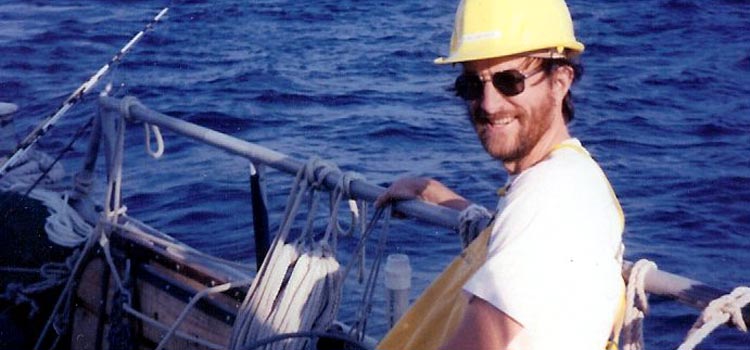Steve Ross: Video Transcript
Hear Dr. Ross talk about his job. Download (mp4, 192 MB).
Introduction
I’m Dr. Steve Ross and I’m a research professor at the University of North Carolina’s Center for Marine Science.
About Steve’s Job
At this level in my career, unfortunately, I spend quite a lot of time doing administrative work. I manage usually in the neighborhood of five to six grants at one time and that requires a fair amount of tracking of money. I have, depending on the grants, two to four permanent employees, long-term employees, and sometimes two to three graduate students, so there’s a fair amount of personnel management that goes with that. Most of my employees and graduate students are pretty independent, but still I have to oversee what they do and I’ve been running a fairly consistent program for the last 10 or 15 years. So there’s a lot of administration, a lot of paperwork. Increasingly so, I spend a lot of time writing grant proposals and looking for grant proposals which also requires a lot of communication with colleagues. So I spend a lot of time doing that by phone and email and at conferences in person. I spend a lot of time analyzing data or directing my staff to analyze data and writing scientific papers for publication.
With the kind of work that we do now in the deep sea, we’re probably at sea only anywhere from one long cruise to two or three cruises a year. In previous jobs that I had, I was in the field every week, but that’s less so now. One cruise now produces enough data to keep us working for a year, at least.
Public Benefit
Whether it’s used or not, we produce quite a lot of data that’s immediately available to the public and with some immediate information returns. For instance, in this canyons cruise, we’ve identified sensitive coral habitats that were not known before and located them accurately, which was not known before. We’ve identified a methane cold seep which we thought was in this canyon but now we know it is for sure. We will, my colleague and I, Dr. Brooke, will go back after this cruise and draw boxes around these areas and propose to the management councils that these areas be protected. And we’ll have information to back that up. So the councils are very receptive to this kind of information and have used our data like this before, so that is of an immediate benefit to the public.
Quite often in this kind of work, the sorts of things that we collect and that this diverse team collects appear to be esoteric and not useful, but it’s amazing how, in the future, people look back on these kinds of collections and say, “oh, I’m really glad they collected that; we didn’t know that was useful, but now it’s of vital importance.”

Exploring the ocean in manned submersibles has allowed Dr. Ross to see and experience things that some of us can only imagine.
Getting Interested in Ocean Science
I didn’t really become seriously interested in ocean science until I was an undergraduate at Duke University and that’s pretty far along in a person’s life, even though that’s a young age. As a child, I was not necessarily interested in science, I was interested in, I always liked to solve problems, to take things apart and put them together and to fix things, if I could. And I spent a lot of time at the seashore as a kid, right from the time I was a baby. So I was, for some reason or another growing up in an inland community, I became interested in the ocean. I read books about the ocean and about ships and the sea and was just always fascinated with that. I learned to sail at an early age. I learned to scuba dive when I was in high school and so I had some idea early on that what I was going to do had something to do with the ocean. As far as heading toward a science career, I didn’t really go there until I got to the university and got a better science background and more direction toward marine science.
Exploring in Submersibles
Very few things jump out when people ask me that question about what’s the one key thing that you’ve seen that you always go back to. I can remember a number of things and they always involve my work in manned submersibles. I’ve had a swordfish attack the submersible. I’ve seen lots of large sharks. I’ve seen habitats that no one else on Earth has ever seen. I’ve collected species that are new to science. And I’ve seen beautiful places that are just completely hidden to the public, beyond the depths of scuba diving or normal travel. So those things always come to mind and I get to see a lot more of that than many scientists.
Job Rewards
On a very personal basis, I like solving problems and so when I’ve proposed a particular scientific hypothesis or theory and I’ve outlined a series of steps to address that hypothesis to find out if it’s true or false, and I work through those steps and it’s successful and I come to some conclusion, that’s always personally satisfying. When that success translates into something that’s useful on a more, a broader basis, that is rewarding in itself.
Recently, in some of our work, the South Atlantic Fishery Management Council has used a lot of our information to create some of the largest deepwater coral protected areas in the country and that kind of thing is very gratifying.
Return to profile